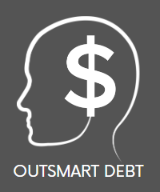
What is a ProSumer?
As a mortgage lender, one of the most frequent questions I receive is, “Should I rent or buy”. With few exceptions, buying makes the most sense. The term ProSumer is one you will hear more in the future. It comes from the words Producer; something or someone that produces a return or benefit, and Consumer; someone that consumes or uses up something.
Housing is a basic need. To rent housing is to consume or be a consumer. You are the end user. The Producer would be your landlord. This is someone who is producing a return or benefit in the forms of tax advantages, market appreciation, and income.
To be a ProSumer, in this case, you would be the owner and resident of the property. You would have shelter along with tax advantages and market appreciation.
Should I buy a home using a mortgage or pay cash?
Unless you have a reason for leveraging the purchase, as in when it’s purchased for investment purposes, paying cash may be your best option. Of course, this completely depends on what your long-term goals are. If, for instance, you plan to include real estate as part of your investment strategy, then using a mortgage to leverage the purchase and gain some tax benefits can be a good way to go. However, even with this strategy, being completely debt-free, including mortgages on investment properties, can help you sleep better at night.
Should I rent until I’ve accumulated the funds necessary to pay cash?
I wouldn’t recommend it. With homes appreciating at an average annual rate of 6.6% and your savings, currently earning about 1%, each year your ability to purchase a home slips further away.
There are numerous low & zero-down programs, as well as down-payment assistance programs currently available. With this type of leverage, someone could now purchase a home with very little cash and make payments similar to what they would have paid as a renter.
When should you get started in Homeownership?
When you are ready to settle down for a few years. Buying a home and then selling it within the first couple of years isn’t a very wise investment strategy because of the incoming and outgoing costs of the transaction. One exception to this would be a “fix-up” property, where the property may be undervalued when you made the purchase and at market value when you sell it. If you decide to move shortly after buying the home, another option may be to rent the property to another party, instead of selling,
Can Real Estate be a good long-term financial strategy?
As with many investments, real estate investing can have an element of risk. However, I know of no other investment that offers as many benefits, including leverage, tax benefits, long history of appreciation, and the ability to have someone else pay for it.
Can I Buy a House?
Many times, buying a house can be easier than buying a car or getting a credit card, because one-third of the underwriting equation isn’t about you… it’s about the collateral.
The three main things an underwriter looks at when determining “creditworthiness” are:
- Credit (“A” credit is a minimum of 620 credit score)
- Income to debt ratios (and stability of that income).
- Equity (Down payment on the collateral).
When someone is “short” in one area, we simply highlight the other two. Thus, if someone wants to purchase a home with zero down, we focus on the credit and income. If someone has bad credit, we focus on income and equity.





